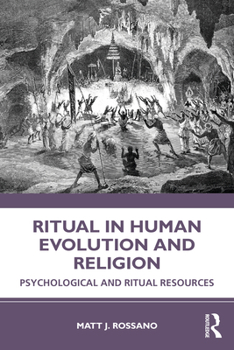Ritual in Human Evolution and Religion: Psychological and Ritual Resources
Select Format
Select Condition 
Book Overview
This book explores the role of ritual in social life, human evolution, and religion. It explains the functions and purpose of varied rituals across the world by arguing they are mechanisms of 'resource management', providing a descriptive tool for understanding rituals and generating predictions about ritual survival.
By showing how rituals have resulted from the need to cultivate social resources necessary to sustain cooperative groups, Rossano presents a unique examination of the function of rituals and how they cultivate, mobilize, and direct psychological resources. Rossano examines rituals from a diverse range of historical contexts, including the Greco-Romans, Soviet Russians, and those in 'crisis cults'. The book shows how rituals address societal and community problems by cultivating three psychological resources - commitment to communal values, goodwill (both of humans and supernatural agents) and social support or social capital. Holding communities together in the face of threat, disaster, or apathy is one of ritual's primary functions, and the author describes how our ancestors used ritual to become the highly social, inter-dependent primate that is Homo sapiens.
Including examples from all over the world and providing detailed descriptions of both past and current ritual practices, this is fascinating reading for students and academics in psychology, sociology, religion, anthropology, and sociology.





